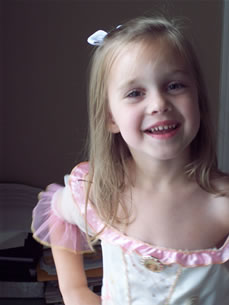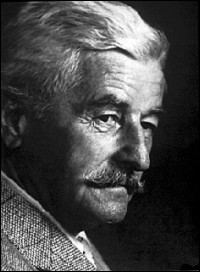One Wedding and a Four Year Old
My children have a way of focusing in on reality. Beyond the drama and all the . . . well . . . pink, both of my girls have this innate ability to see past the trappings of adulthood and unearth the raw truth behind the things my wife and I have already begun to take for granted.
My four year old gives me the best example of this today seated in the very back row of a church during a friend’s wedding ceremony. When you combine the number of weddings my wife and I have attended and even participated in, it’s not surprising that we knew by heart every song from the ceremony. We knew every convention followed, and noticed every deviation from convention. Not that we cared either way. We just kind of go on auto-pilot at weddings.
Not my four year old. While this is actually NOT her first wedding, it was clearly among the first in which she paid any kind of attention to what was being said. As the preacher (that’s “minister” to everyone outside of Alabama) prompts the soon-to-be-newlyweds to utter those famous last words “I do,” my wife and I smile to one another in anticipation of what we know will be the couple’s answers. Not sharing our clairvoyance, our middle child whispers with the subtlety of a weed eater, “I hope they both say yes.”
A good point, I later thought. Anything to the contrary might not have been very conventional. Although, I must say that it would have made for a MUCH better blog post.
Following the ceremony is the traditional finger food and punch reception. Of course my daughter wants to wait in line (an incredibly long, perhaps record-breaking line) to see the bride, which I’m almost certain she has confused at this point with one of the princesses from the Disney lineup. As we finally reach the young couple (having never even met the bride) my shy child leaps forward and embraces the “princess” with no less drama than if the two had met running full stream ahead in the middle of a wheat field to the soaring strings of theatrical background music.
 Surprised but slightly amused by the show of spontaneous and rather anonymous affection, the bride kindly returns the hug only to hear my daughter ask the most probing, thought-provoking, socially conscious question one could expect at a time like this, “Could I see your shoes?”
Surprised but slightly amused by the show of spontaneous and rather anonymous affection, the bride kindly returns the hug only to hear my daughter ask the most probing, thought-provoking, socially conscious question one could expect at a time like this, “Could I see your shoes?”
So from the mouth of babes comes (as best I can summarize) the two following truths:
1. While one can never assume a “yes,” one can most certainly always hope.
2. Forget the vows, the cake, the flowers, the guests. If you want a true measure of how long a marriage will last, check out the shoes.
I think I got it.
 My children have a way of focusing in on reality. Beyond the drama and all the . . . well . . . pink, both of my girls have this innate ability to see past the trappings of adulthood and unearth the raw truth behind the things my wife and I have already begun to take for granted.
My children have a way of focusing in on reality. Beyond the drama and all the . . . well . . . pink, both of my girls have this innate ability to see past the trappings of adulthood and unearth the raw truth behind the things my wife and I have already begun to take for granted. I read Faulkner’s As I Lay Dying in high school. I even wrote a literary critique on the book. Of course I merely compiled and reconstructed the thoughts of other noted scholars on the subject. This earned me an “A,” and so I was happy. The End.
I read Faulkner’s As I Lay Dying in high school. I even wrote a literary critique on the book. Of course I merely compiled and reconstructed the thoughts of other noted scholars on the subject. This earned me an “A,” and so I was happy. The End. My next project, Light in August. First let me say that this selection was solely predicated on the availability of audiobooks through my library’s online lending system. I
My next project, Light in August. First let me say that this selection was solely predicated on the availability of audiobooks through my library’s online lending system. I